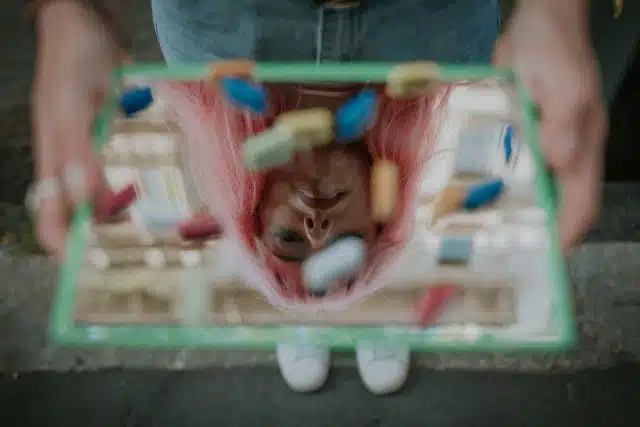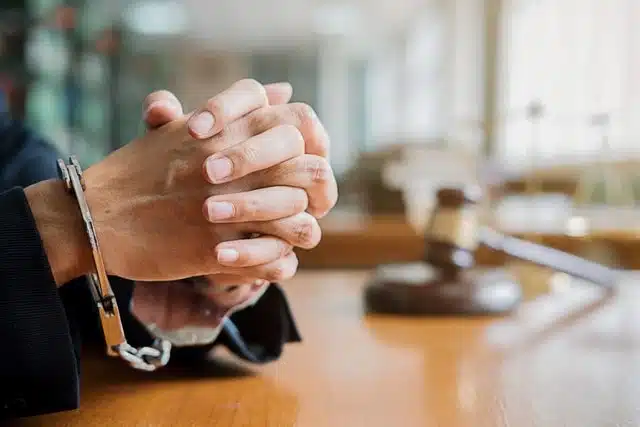Drug Trafficking Attorney in Kansas City
What Is Drug Trafficking?
Drug trafficking is the illegal manufacturing, distribution, and sale of controlled substances. Several controlled substances are prohibited in the United States.
The Controlled Substances Act divides drugs into five schedules depending on their abuse potential. Individuals caught trafficking substances listed under Schedules 1 to 5 will face serious consequences.
Understanding Drug Trafficking Laws & Penalties in Missouri
Under Missouri laws, drug trafficking occurs when a person knowingly distributes or attempts to deliver, manufacture, or produce:
-
Over thirty grams of a mixture or substance containing detectable amounts of heroin
-
Over one hundred and fifty grams of a substance containing coca leaves or cocaine salts
-
Over five hundred milligrams but less than one gram of lysergic acid diethylamide (LSD)
-
More than eight grams of a substance containing a cocaine base
-
Over thirty grams of a mixture or substance containing phencyclidine (PCP)
-
Over four grams of phencyclidine
-
More than thirty kilograms of a substance containing marijuana
-
Over ten milligrams of fentanyl or carfentanil
-
Any amount of gamma-hydroxybutyric acid
-
More than thirty grams of any mixture containing amphetamine, methamphetamine, and phenmetrazine.
Both state and federal drug laws govern drug crimes in Missouri. But, the penalties and sentencing at the federal level are harsher. Hence, individuals can face trafficking charges for possessing large quantities of controlled substances.

What Is Drug Trafficking in the First Degree?
In the state of Missouri, drug trafficking in the first degree is a serious criminal offense related to the illegal sale, distribution, or transportation of controlled substances. The specific definition and penalties for Drug Trafficking in the First Degree can be found in the Missouri Revised Statutes (RSMo) under section 579.065.
According to Missouri law, drug trafficking in the first degree is generally charged when an individual knowingly distributes, delivers, manufactures, or possesses with the intent to distribute or deliver a large quantity of controlled substances.
The specific drugs and quantities that qualify for first-degree drug trafficking may vary based on the type of substance involved.
What Happens After A Drug Trafficking Charge?
After an individual is charged with drug trafficking, the police will arrest them. They will also decide whether or not to release them on bail.
They will keep them in custody until the court date if they decide not to release them on bail. At the court appearance, officers will present them with information about their case.
Individuals are presumed innocent until the prosecution proves them guilty. However, entering a guilty plea means they committed the crime, and the court will skip their trial.
Entering a not-guilty plea means that there will be a trial. At the trial, the prosecution and defense will present evidence to prove that the individual committed the crime.
If the jury or judge finds them guilty, they will attend a sentencing hearing. However, if they do not, they will be acquitted.

Penalty for a Drug Trafficking Charge in the First Degree
The penalty for a first-degree drug trafficking offense depends on the type of drugs and the quantity involved.
First-Time drug charges in Missouri are Class B felonies. However, they are upgraded to a Class A felony offense if the quantity is higher.
For example, trafficking over thirty grams of heroin, marijuana, or PCP is a Class B felony. However, if the quantity involved is over ninety grams, it is upgraded to a Class A felony.
A Class B felony charge carries a penalty of five to fifteen years imprisonment and a fine of $20,000. For Class A felonies, the penalty is ten to thirty years imprisonment and $30,000 in fines.
If an individual was trafficking drugs across state lines, it would become a federal offense. Under federal laws, the maximum punishment is life imprisonment and up to $10 million in fines.
For group-related offenses, the fines are up to $50 million and not more than forty years imprisonment. Individuals convicted of drug trafficking charges are not eligible for parole, diversion, or plea bargaining.

Examples of Drug Trafficking Offenses That Are Class A Felonies
Drug trafficking in the first degree becomes a Class A felony when a person distributes:
-
Ninety grams or more of a substance containing heroin
-
Four hundred fifty grams of coca leaves or cocaine salts
-
Twenty-four grams of a mixture containing a detectable amount of cocaine base;
-
One gram or more of LSD
-
Ninety grams or more of a mixture containing PCP
-
Twelve grams or more of phencyclidine
-
One hundred kilograms or more of marijuana
-
Not less than ninety grams of a mixture containing amphetamine, methamphetamine, and phenmetrazine
-
Twenty milligrams of fentanyl or carfentanil

Aggravating Factors That Can Increase Drug Penalties
The court may enhance a drug penalty if certain factors are present, including:
-
The involvement of an individual below the age of eighteen
-
The use of firearms
-
The death or serious bodily injury of someone else occurred
-
The distribution of drugs to individuals below the age of twenty-one
-
Trafficking drugs while on parole for another offense
-
The distribution of drugs to an individual who is pregnant
-
Trafficking drugs at a school where children are present
Aggravating factors can substantially increase your sentence. Having the guidance of a drug trafficking defense attorney in Kansas City is important.
What to Do When Arrested for Drug Trafficking
If you are arrested for a drug trafficking offense, contact the Missouri DWI Criminal Law Center. Do not talk to the police officers about the case.
When questioned, do not make any admissions because they are recorded as evidence. Our lawyers can help secure a bond or bail on your behalf.

Fighting Drug Trafficking Charges in Missouri
Drug charges have serious consequences, and offenders need a strong defense to fight those charges. Some possible defenses include:
-
The officer did not have a search warrant authorizing them to conduct a search
-
You were unaware of the presence of illegal drugs on your property
-
You trafficked drugs because you were under threat of danger
-
You were at the wrong place at the wrong time
-
The police officer entrapped you to traffic drugs
-
There is not enough evidence to convict you
How Can a Defense Attorney Help Your Case?
In Missouri, drug trafficking in the first degree is a serious charge. It carries some of the highest penalties and hefty fines. If you are asking, “can felony drug charges be dropped?” Hiring an experienced defense attorney is vital.
At the Benjamin Law Firm, LLC, we aim to get you the best possible outcome by challenging the evidence against you. Our lawyers will examine the police officer’s conduct before and after the arrest. Further, we will do everything possible to have your charges reduced or dismissed.
Our team can effectively defend you against the prosecution’s accusations. We can analyze your case and suggest drug treatment programs to help your case. For more information about drug trafficking, contact us today.














